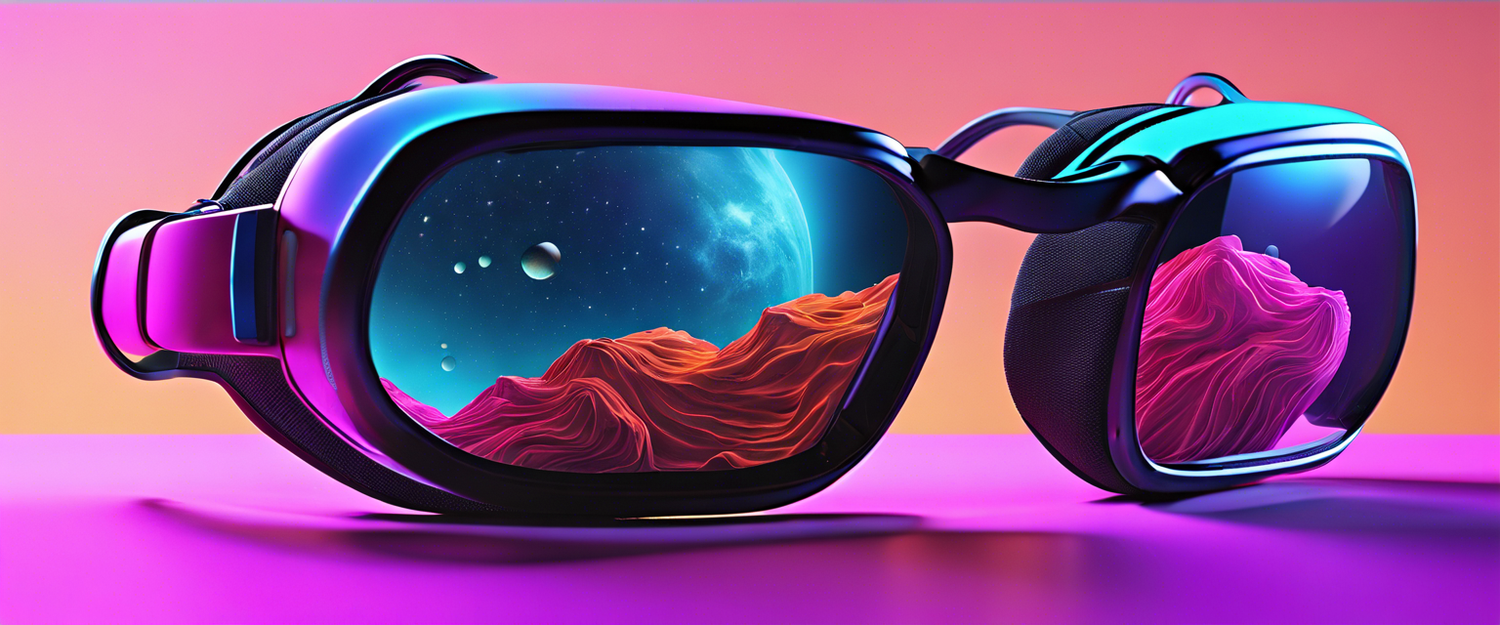Meta Unveils Orion: The Future of Augmented Reality Glasses
At Meta’s headquarters in Menlo Park, California, the tech world took a significant step forward as CEO Mark Zuckerberg introduced Orion—Meta’s first augmented reality (AR) glasses. While initially intended for retail, the glasses are currently a showcase of technological potential rather than a product ready for sale.
Design and Display Capabilities
From the moment I entered the conference room, the Orion glasses caught my attention with their unassuming black frames, reminiscent of classic eyewear. However, these glasses are built for a much greater purpose. Orion integrates Micro LED projectors that deliver high-quality graphics through specially designed lenses made from durable silicon carbide. This material not only ensures a lightweight feel but also allows light to fill a significant portion of your vision, creating an immersive experience.
Functionality: AI Integration and User Experience
Zuckerberg envisions two primary functions for Orion: enhancing communication through AR and interacting with artificial intelligence. During a recent demo, I experienced the glasses' capabilities, like identifying ingredients for a smoothie recipe through Meta AI. In a remarkable display of precision, labels appeared over various items with a simple request.
Engaging in Interactive Experiences
Playing a 3D version of Pong with Zuckerberg showcased the glasses' fluidity and responsiveness. Thanks to hand-tracking capabilities and a seamless connection through paired devices, interactions felt smooth and engaging. Despite the advanced technology, I learned that Orion is more of a prototype than a commercial device.
Technical Specifications and Challenges
- Weight: At 98 grams, the glasses weigh significantly less than many mixed reality headsets.
- Field of View: Orion boasts a 70-degree field of view—wider than competing AR glasses on the market.
- Battery Life: Unfortunately, the battery lasts only about two hours, limiting extended use.
- Advanced User Controls: Users control the AR experience via a neural wristband that recognizes gestures through electromyography.
The Future of Orion and AR Technology
Despite Orion’s promising technology, Meta decided to hold back its release due to exorbitant manufacturing costs, notably around $10,000 per unit. CEO Zuckerberg and his team have opted to focus on refining the device for a potential consumer version within a few years that will feature enhanced usability and affordability.
Next Steps for Meta
Meta plans to introduce simpler yet capable AR glasses, codenamed Hypernova, aimed at more casual interactions, signaling a gradual transition in their AR journey. This step underscores the company’s commitment to moving away from reliance on traditional smartphones and towards a new interface for digital interaction.
The Competitive Landscape
With competitors like Apple, Snap, and Google investing heavily in AR technology, Meta must demonstrate its value as a mainstream hardware manufacturer. The introduction of Orion is vital for re-establishing confidence in Meta’s technological advancements amid scrutiny and skepticism.
Conclusion: A Glimpsed Future but Challenges Ahead
Indubitably, Meta’s Orion represents a significant leap in augmented reality technology, showcasing a tangible vision for the future of computer-wearable devices. However, the road to commercial viability remains filled with challenges that the company will need to navigate as it aims to redefine how we interact with both the digital and real worlds.
Stay tuned for further developments as Meta refines its technology, moving closer to producing AR glasses that are not only innovative but also affordable and practical for everyday use.



Zostaw komentarz
Wszystkie komentarze są moderowane przed opublikowaniem.
Ta strona jest chroniona przez hCaptcha i obowiązują na niej Polityka prywatności i Warunki korzystania z usługi serwisu hCaptcha.